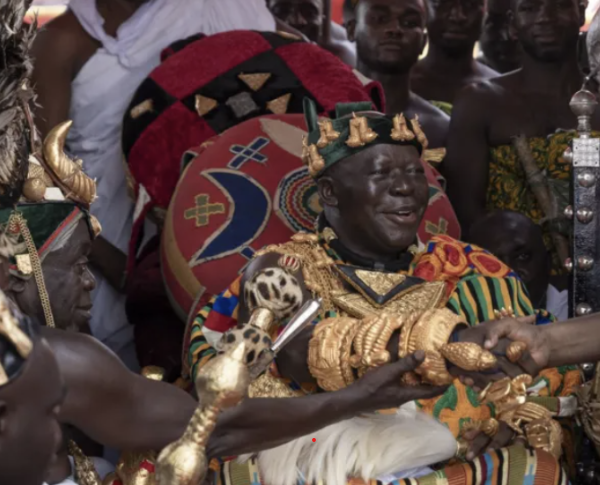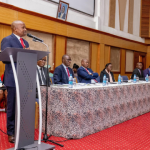A controversy involving a prominent journalist and the Ashanti king has captured significant attention in Ghana. It all started when Afia Pokua criticized the king’s handling of tensions with other ethnic groups, the deference shown to him by politicians, and expressed her frustration over the perceived supremacy of the Asante community.
“Even the president… bowed to show respect to the chief,” Ms. Pokua remarked during an interview with Mona Gucci earlier this month on the local channel Onua TV. “Asante is not the whole of Ghana. If you are only thinking about Asante, they can amend the laws so that you can separate yourself from the rest of the country.”
Her remarks were not well received by the traditional ruler. Otumfuo Nana Osei Tutu II, the head of the Ashanti kingdom, holds a powerful societal position, and openly insulting or criticizing him is considered extremely disrespectful. His official title is the “Asantehene,” but he is also referred to as “Nyame Kessie,” meaning greater god, and is treated with the utmost respect.
Royal historian Osei Bonsu Sarfo Kantanka, who works for the Asantehene, explained the protocol for criticizing the leader.
“You go through the queen mother—she is the only person who can rebuke him. If you don’t go through the queen mother and do it yourself, then you’re in trouble,” he said. He also condemned Ms. Pokua for suggesting that the 70-something Otumfuo Nana Osei Tutu II was hard of hearing, stating, “If you use this word on even an ordinary person, he will not take it as criticism.”
In an attempt to apologize for her comments, Ms. Pokua visited the Manhye Palace in Kumasi, where the Asantehene resides. Dressed in black and accompanied by elders, she knelt on the ground and begged for forgiveness, along with Ms. Gucci. The entire scene was filmed for television.
However, Ms. Pokua’s apologies were rejected by representatives of the Ashanti traditional ruler, and she was instructed to leave the palace. “Take your cursed self and your troubles with you. Whatever comes your way in the future, deal with it on your own. Do not ever return here,” the Asantehene reportedly told her, according to local media.
That was despite her already apologising on social media and live television.
According to the royal historian, it boils down to another failure to follow etiquette.
In order for her apology to be accepted, said Mr Osei, the journalist should have appealed to the Agona traditional authority and taken along with her, her parents and the owners of the TV station that broadcast the critical remarks.
If the apology were accepted, the Agona chief would then convey the message to the Asantehene and then set a date to take her to Manhye Palace for another apology.
But, if she follows these steps now, it may not be too late.



